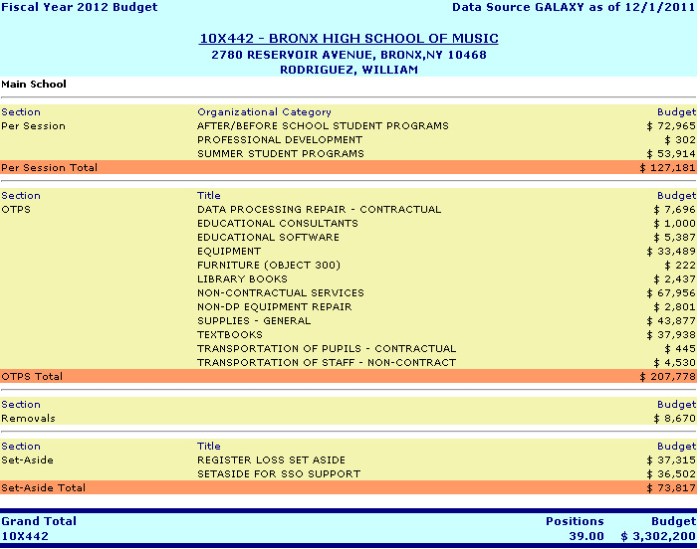
Imagine your budget as a delightful little garden, where every dollar is a seed waiting to blossom into a financial bloom. Budget counseling is like having a quirky gardener by your side, ensuring that your financial flowers flourish rather than wilt in the harsh light of overspending. It’s the magical process of crafting a personal budget that not only keeps your bank account from going into hibernation but also empowers you to strut through life with confidence and a sense of control!
In this adventure, we’ll explore the essentials of budget counseling, from the importance of crafting a personal budget to the treasure trove of tools and resources that can help you navigate your financial landscape. And let’s not forget the role of credit counseling in turning your financial frowns upside down, along with savvy debt management strategies that will have you dancing through your financial journey!
Budget Counseling Basics
Budget counseling is like having a personal trainer for your wallet, guiding you through the treacherous terrain of financial fitness. This process helps individuals understand their spending habits, prioritize expenses, and develop a plan to achieve financial stability. The importance of budget counseling cannot be overstated; it empowers individuals to take control of their financial future, make informed decisions, avoid debt traps, and ultimately breathe easier knowing that their money is working as hard as they do.Creating a personal budget is akin to drawing a treasure map; it helps you navigate the world of income and expenses to find your financial gold.
The first step is to gather all financial information, including income, fixed expenses (like rent or mortgage), variable expenses (like food and entertainment), and any debts. Next, it’s essential to categorize these expenses and compare them against income to find out where you stand. By establishing a clear picture of financial health, you can make informed choices and set realistic financial goals.
Tools and Resources for Budget Counseling
In today’s digital age, there are countless tools and resources available for budget counseling, making the process easier and more effective. Here are some popular options to consider:
- Budgeting Apps: Applications like Mint or YNAB (You Need A Budget) allow you to track spending, categorize expenses, and visualize your financial health—all from the comfort of your smartphone. These apps often come with alerts to help you stay on track and avoid overspending.
- Worksheets and Templates: Old school, but still effective! Printable budgeting worksheets can help you organize your finances on paper. These templates are designed to help you categorize expenses and track income, providing a tactile connection to your budget.
- Financial Counseling Services: Non-profit organizations and community centers often offer free or low-cost budget counseling services. These professionals can provide personalized advice tailored to your financial situation, ensuring you receive support in areas where you need it most.
When selecting tools, it’s crucial to choose those that resonate with your lifestyle and preferences. Utilizing multiple resources can provide a more comprehensive approach to financial management.
“Budgeting isn’t about limiting yourself; it’s about making room for the things that matter most.”
By leveraging these tools and resources, individuals can embark on their budgeting journey equipped with knowledge and support, leading to a more secure financial future.
Credit Counseling and Financial Health

Credit counseling is like that wise friend who always has your back, especially when your wallet feels a bit lighter than usual and your credit score is more of a rollercoaster ride than a straight path. It plays an essential role in helping individuals regain control over their financial destinies—one budget at a time. So, let’s dive into the nitty-gritty of how credit counseling can help boost financial stability and improve those pesky credit scores that seem to fluctuate more than a teenager’s mood.Credit counseling provides the tools and guidance necessary for better financial management.
Not only does it help individuals create a roadmap to financial health, but it also assists in understanding the nuances of credit reports, debt repayment, and budgeting strategies. Armed with the right knowledge, clients can make informed decisions, avoid pitfalls, and ultimately make their money work for them—like a little financial minion, but instead of fetching snacks, it’s fetching savings and stability.
Improving Credit Scores through Effective Budgeting
Effective budgeting is a cornerstone for improving credit scores, and it’s crucial to understand how they are interconnected. A well-crafted budget not only ensures you pay your bills on time but also helps in establishing a healthy credit history. Here’s how to leverage budgeting to give your credit score a much-needed lift:Regular bill payments are the bread and butter of your credit score.
Missing payments can drop your score faster than a hot potato. Prioritize bills and make them non-negotiable, like a date with your favorite pizza.Reducing credit utilization plays a starring role. Aim to keep your credit utilization ratio below 30%. This means if you have a credit limit of $10,000, keep your balance below $3,000 to show creditors you’re not living on the edge.Crafting a budget allows you to allocate funds for debt repayment.
Consider the snowball method, where you pay off smaller debts first, gaining momentum like a snowball rolling down a hill—bigger and faster as it goes!Regularly reviewing your credit report is essential to spotting inaccuracies or fraudulent activities. Disputing errors can lead to a quick bounce back in your score. Get your free annual report, and use it like a treasure map to find and fix errors!For those considering credit counseling services, knowing the variety of options available can help in making a decision that best fits your situation.
Here’s a snapshot of the services offered by different agencies:
| Agency Type | Services Provided | Cost |
|---|---|---|
| Non-Profit Credit Counseling | Budgeting assistance, debt management plans, credit report reviews | Free or low-cost |
| For-Profit Credit Counseling | Debt settlement, credit management, personal finance education | Varies, often higher fees |
| Community-Based Organizations | Financial education workshops, one-on-one counseling | Usually free or donation-based |
Understanding the differences between these agencies can be the difference between a wise financial decision and a potential pitfall. Each offers distinct services that can cater to varying needs, ensuring that clients are not just left floundering in a sea of financial confusion but instead equipped with the skills and knowledge to sail smoothly toward stability.
Debt Management Strategies

Navigating the rocky road of debt can feel like trying to balance a unicycle while juggling flaming swords. But fear not, for with the right debt management strategies, you can transform this chaotic circus into a smooth sailing boat towards financial freedom. Let’s explore various methods that can help you rein in your debts and set sail into calmer financial waters.
Debt Consolidation Methods and Benefits
When it comes to managing debt, consolidation is like gathering all your unruly pets into one pen—you have better control and less chaos. Here are several methods to achieve this:
- Debt Consolidation Loan: Take out a personal loan to pay off multiple debts, leaving you with a single monthly payment. The benefit? Often lower interest rates and improved credit score over time as you show responsible borrowing behavior.
- Balance Transfer Credit Card: Move high-interest credit card balances to a card with a 0% introductory APR. This gives you a breather (and a chance to save on interest) for a limited time to pay down the principal.
- Home Equity Loan: Tap into your home’s equity for a lump sum to pay off debts. While it can lower your interest rates, remember: Your home is on the line, so use with caution.
- Debt Management Plan (DMP): Partner with a credit counseling agency to negotiate lower interest rates and payments with creditors. Think of it as having a financial cheerleader on your side.
Each method has its unique benefits and potential risks, but they all aim to make your life simpler by replacing multiple payments with one manageable sum.
Step-by-Step Debt Relief Through Budgeting
Creating a budget is like building a sturdy ship for your financial journey. Here’s a structured step-by-step plan for effective debt relief through budgeting:
- Assess Your Finances: Start with a clear picture of your income, expenses, and total debt. This is your financial topography map.
- Set Realistic Goals: Define what you want to achieve. Perhaps it’s paying off a credit card or saving a small fortune for that dream vacation. Goals give your budgeting journey purpose.
- Create Your Budget: Allocate your income towards essentials (food, shelter), debts, and savings. Don’t forget to leave a little wiggle room for fun—after all, financial health means enjoying life!
- Track Your Spending: Use apps or spreadsheets to monitor your daily expenses. This is the ‘keep your eyes on the prize’ phase. It helps you stay accountable and adjust spending habits.
- Adjust and Optimize: Review your budget regularly. Life changes, and so should your budget. Find areas to cut back and redirect those funds to paying down debt.
- Celebrate Small Wins: Every payment made is a step closer to freedom. Celebrate those wins! Treat yourself (within reason, of course).
Following these steps can lead you towards a life free from the heavy anchor of debt.
Home Equity Loans and Their Implications
Using a home equity loan is like using a secret weapon in your financial arsenal; it can be incredibly powerful but comes with its own set of risks. Here are some key implications for your personal finances and budgeting:
“A home equity loan can provide immediate cash but places your home at risk if you can’t repay it.”
When considering a home equity loan, keep in mind the following:
- Lower Interest Rates: Home equity loans typically offer lower interest rates compared to credit cards and personal loans, making them a tempting option for debt consolidation.
- Potential Tax Benefits: In some cases, the interest paid on a home equity loan may be tax-deductible, providing further financial relief. Check with a tax professional to see if this applies to you!
- Risk of Foreclosure: If you fall behind on payments, you risk losing your home. Always weigh this risk against the benefits.
- Longer Repayment Terms: These loans often come with longer repayment periods, which could lead to paying more interest over time compared to quicker debt repayment options.
Incorporating a home equity loan into your debt management strategy requires careful thought and consideration, ensuring you maintain control over your financial destiny without losing your castle.
Final Review
So there you have it! Budget counseling is not just about crunching numbers and balancing spreadsheets; it’s about taking the reins of your financial future and steering it towards sunny shores. With the knowledge of budgeting basics, the magic of credit counseling, and the art of debt management, you’re equipped to transform your financial woes into a symphony of success.
Get ready to embrace your inner financial wizard and watch your budget bloom!
Popular Questions
What is budget counseling?
Budget counseling helps individuals learn how to manage their finances, create budgets, and improve their financial literacy.
How can I start my budget journey?
Begin by tracking your income and expenses, then categorize them to identify areas where you can save.
How often should I review my budget?
It’s wise to review your budget monthly to make adjustments based on your spending habits and financial goals.
Can budget counseling help with debt?
Absolutely! Budget counseling provides strategies to manage and reduce debt, paving the way to financial freedom.
Are there any costs associated with budget counseling?
Many budget counseling services are free or low-cost, but it’s good to check upfront for any fees.





